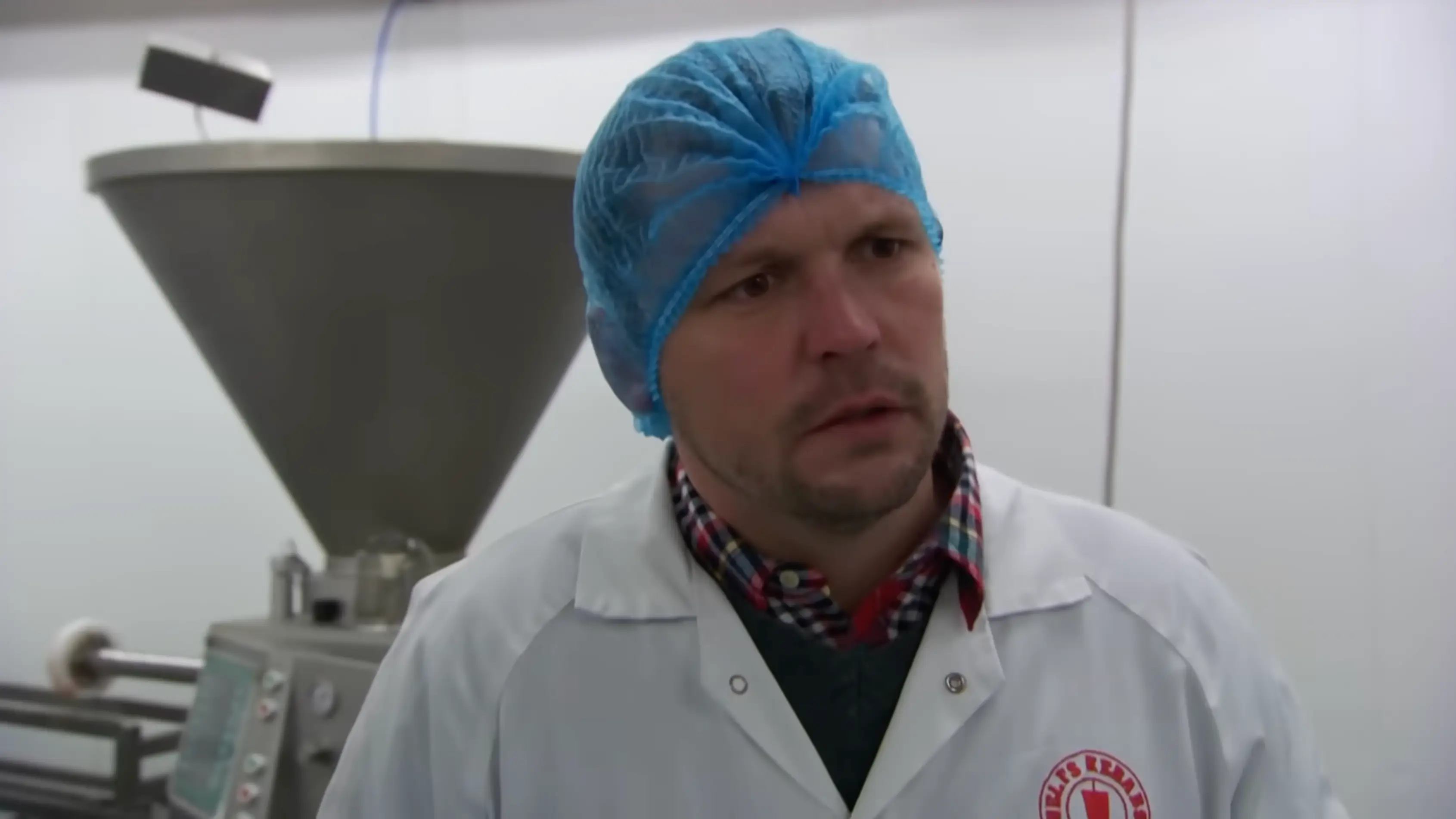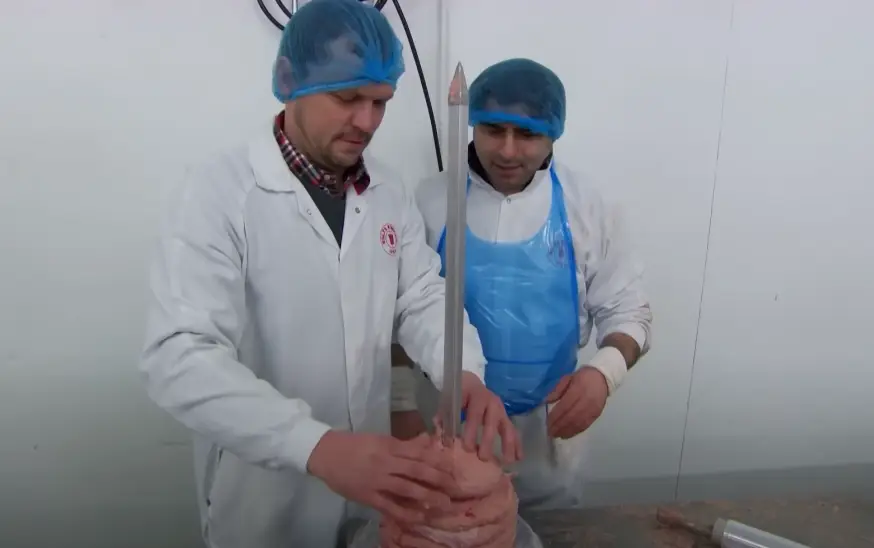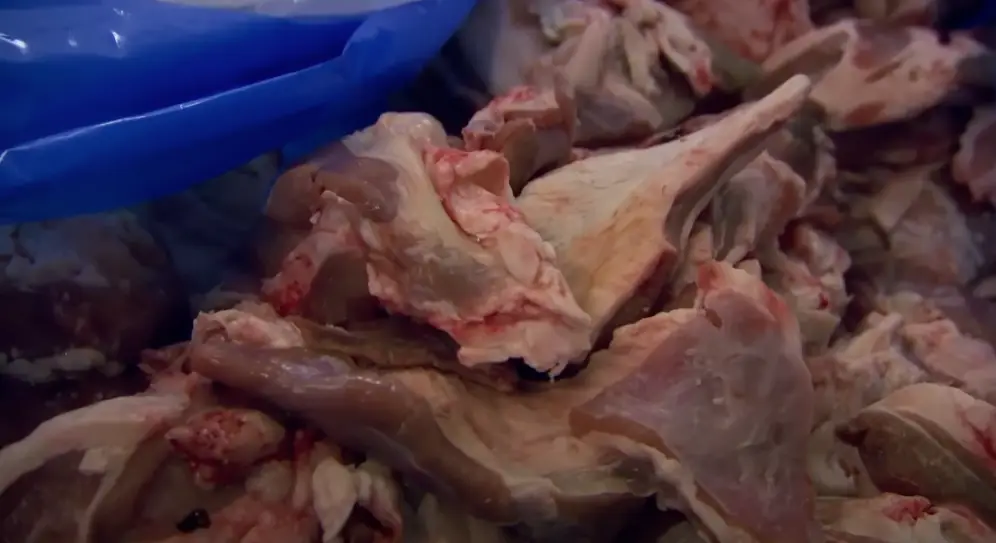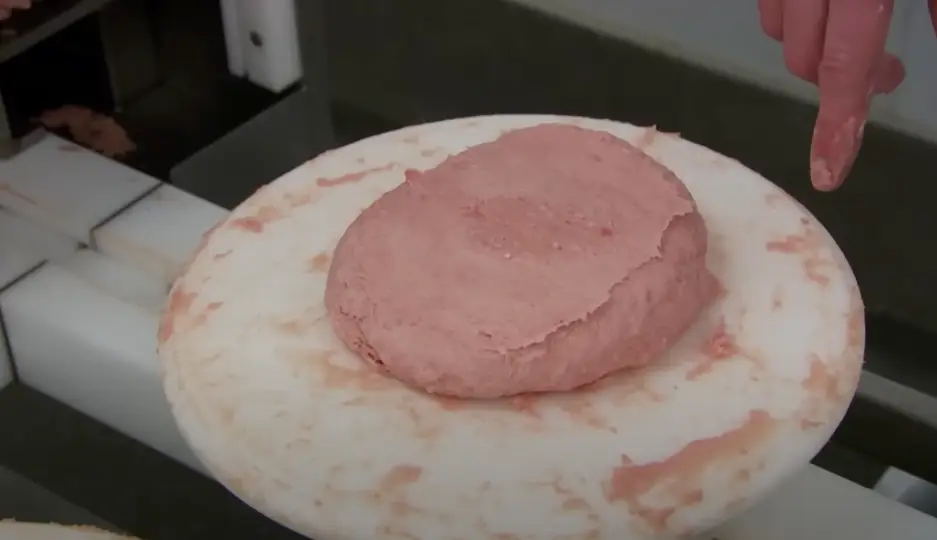
Maccies and a doner kebab are arguably the two best food options after a night out.
Nothing quite hits the spot like 20 nuggets - I don't care that it's a sharebox - or a big fat kebab covered in sauce and salad.
But whilst you're tucking into your doner, you're probably not thinking much about how it's made, and nor do you want to.
And when it comes to the aftermath, let's just say you might be left with a bit of food for thought.
Advert
TV presenter Jimmy Doherty went and found out how factories actually make doner meat during a 2013 episode of Food Unwrapped.
The Channel 4 series uncovers industry secrets behind our favourite food, and Jimmy is surprised by what goes into making a doner.

He learns from the factory worker that a proper doner should include only lamb meat.
At this particular establishment, their kebabs are mixed with textured soya protein, onion powder and salt to bulk it out and make it easier to cut.
It turns out that the doner kebabs they make contain 85 percent lamb, five percent bulker, five percent rusk and five percent seasoning and salt.

However, not every kebab you see on the high street is made in the same way.
"There are companies out there that are labelling up kebabs and they're containing beef and chicken - and there have been some instances of pork, which, for the Muslim community, is a big no-no," the worker explained.
What they did next was food test nine different doner meats from various spots around town.
Forensic scientist Paul Hancock said the team looks out for: “Beef, pork, lamb, chicken, donkey, goat and horse.”

And the results were pretty worrying, as he said only one of the nine samples ‘contains lamb only’.
“There is only one doner kebab that is the real deal,” a shocked Doherty says.
“Most of them contain chicken, we’ve also got a couple which contain beef,” Hancock adds.
“Fortunately, we found no goat, no donkey and no horse in any of the products.”
Normally though, the scientist says he expects to see a 60 percent failure rate if he was given more samples to test, which 'would probably be typical'.
So, it's probs best to ask the take-away what their doner mix is made out of before eating it, if you're bothered that is.